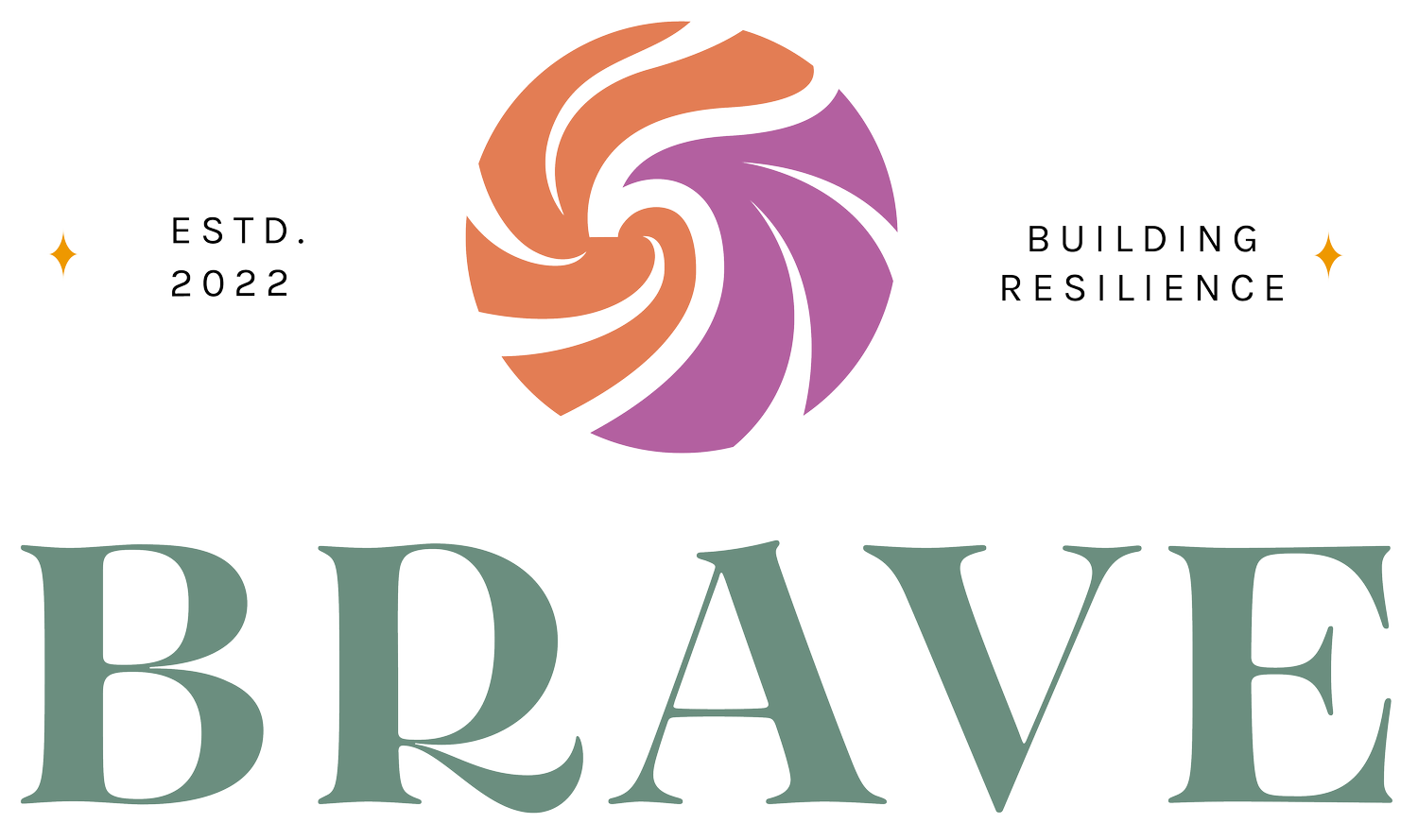My Top 3 Reasons to Name Vicarious Trauma
Are you carrying the weight of the world too?
The weight of the world is heavy, plain and simple. As a fellow trauma therapist, I know you feel it as a professional and as a human.
Much of the weight we carry as trauma therapists comes from the occupational hazard of Vicarious Trauma.
VT is something we naturally soak up through our work as empathic healers. This is not inherently bad. However, when we aren't able to fully "wring it out", it can then be triggered by things seemingly unrelated to your work.
These triggers can be anything from a seemingly benign thing you saw on TV to crossing paths with someone who reminds you of a certain client. Often when I’m not able to wring out my VT in healthy ways, I feel like I’m grasping for control anywhere I think I can find it.
What does this have to do with Naming VT?
Ok, let’s first talk about this term, Naming Vicarious Trauma.
In my work with The BRAVE Trauma Therapist Collective, we regularly work through my signature framework to help us Name VT (identify how it’s showing up in this moment), Tame VT (use helpful strategies that work right now to manage VT), and Reframe VT (tap into the healing power of Vicarious Resilience).
So, why do we want to Name Vicarious Trauma you ask??
Why can't we just keep white knuckling it through our sessions, trying to keep VT at bay?
Because if we don't name VT and just stick our heads in the sand, in only makes things worse!
If you’re on board, let’s just cut right to the chase!
My Top 3 Reasons to Name VT:
1) Naming the ways VT is showing up for you right now means you can be more present for the things that matter most.
When we avoid naming VT, we can't be in the present moment, regardless of whether you think that moment is "good" or "bad."
Remember, darkness doesn't exist without the light; we can't truly appreciate joyful moments in our lives if we don't acknowledge the pain as well.
2) When you stop avoiding VT, you also stop avoiding the things that can help you heal.
This can be a tough one to swallow because healing often means reaching out, or even asking for help (gasp!!).
I am the absolute WORST at asking for help. I hired a doula for my first child birth because I preferred to ask for help from someone I was paying rather than my husband.
Yes, I hear myself... 🤦🏽♀️
3) Naming VT ultimately brings you closer to people and communities that care and will lift you up.
The harder I work to pretend everything is ok, the harder it is to connect with my family, to enjoy spending time with friends, or to look forward to things.
Each time I focus on accurately naming how VT is showing up for me, I notice how much easier it is to be present with the people that matter the most.
So now what??
Learning from others about how they identify and name their own VT is a great first step.
If this is resonating with you, come join the discussion in my free Facebook group, the BRAVE Vicarious Trauma Community, so we can support each other in the ongoing process of naming VT each time it shows up.
If that's not your jam, I don't blame you. In that case, I just want you to take some time this week to notice when you're tired, cranky, or checked out and to ask yourself if that's because of your work as a trauma therapist, is it because of life, or perhaps a bit of both...?
Remember, my free VT tracker is a tool you can regularly use and reuse, especially when you need to name VT in a new season of life.
